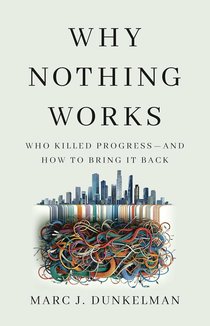Recommended Books

Frontiers of Illusion: Science, Technology, and the Politics of Progress
Author:
Daniel Sarewitz
ISBN 13:
978-1566394154
For the past fifty years, science and technology―supported with billions of dollars from the U.S. government―have advanced at a rate that would once have seemed miraculous, while society's problems have grown more intractable, complex, and diverse. Yet scientists and politicians alike continue to prescribe more science and more technology to cure such afflictions as global climate change, natural resource depletion, overpopulation, inadequate health care, weapons proliferation, and economic inequality. Daniel Sarewitz scrutinizes the fundamental myths that have guided the formulation of science policy for half a century―myths that serve the professional and political interests of the scientific community, but often fail to advance the interests of society as a whole. His analysis ultimately demonstrates that stronger linkages between progress in science and progress in society will require research agendas that emerge not from the intellectual momentum of science, but from the needs and goals of society.

Why Nothing Works: Who Killed Progress―and How to Bring It Back
Author:
Marc J. Dunkelman
ISBN 13:
978-1541700215
A provocative exploration about the architecture of power, the forces that stifle us from getting things done, and how we can restore confidence in democratically elected government. America was once a country that did big things—we built the world’s greatest rail network, a vast electrical grid, interstate highways, abundant housing, the Social Security system, the Tennessee Valley Authority, and more. But today, even while facing a host of pressing challenges—a housing shortage, a climate crisis, a dilapidated infrastructure—we feel stuck, unable to move the needle. Why? America is today the victim of a vetocracy that allows nearly anyone to stifle progress. While conservatives deserve some blame, progressives have overlooked an unlikely culprit: their own fears of “The Establishment.” A half-century ago, progressivism’s designs on getting stuff done were eclipsed by a desire to box in government. Reformers put speaking truth to power ahead of exercising that power for good. The ensuing gridlock has pummeled faith in public institutions of all sorts, stifled the movement’s ability to deliver on its promises, and, most perversely, opened the door for MAGA-style populism. A century ago, Americans were similarly frustrated—and progressivism pointed the way out. The same can happen again. Marc J. Dunkelman vividly illustrates what progressives must do if they are going to break through today’s paralysis and restore, once again, confidence in democratically elected government. To get there, reformers will need to acknowledge where they’ve gone wrong. Progressivism’s success moving forward hinges on the movement’s willingness to rediscover its roots.

Energy: A Human History
Author:
Richard Rhodes
ISBN 13:
978-1501105364
A “meticulously researched” ( The New York Times Book Review ) examination of energy transitions over time and an exploration of the current challenges presented by global warming, a surging world population, and renewable energy—from Pulitzer Prize- and National Book Award-winning author Richard Rhodes. People have lived and died, businesses have prospered and failed, and nations have risen to world power and declined, all over energy challenges. Through an unforgettable cast of characters, Pulitzer Prize-winning author Richard Rhodes explains how wood gave way to coal and coal made room for oil, as we now turn to natural gas, nuclear power, and renewable energy. “Entertaining and informative…a powerful look at the importance of science” (NPR.org), Rhodes looks back on five centuries of progress, through such influential figures as Queen Elizabeth I, King James I, Benjamin Franklin, Herman Melville, John D. Rockefeller, and Henry Ford. In his “magisterial history…a tour de force of popular science” ( Kirkus Reviews , starred review), Rhodes shows how breakthroughs in energy production occurred; from animal and waterpower to the steam engine, from internal-combustion to the electric motor. He looks at the current energy landscape, with a focus on how wind energy is competing for dominance with cast supplies of coal and natural gas. He also addresses the specter of global warming, and a population hurtling towards ten billion by 2100. Human beings have confronted the problem of how to draw energy from raw material since the beginning of time. Each invention, each discovery, each adaptation brought further challenges, and through such transformations, we arrived at where we are today. “A beautifully written, often inspiring saga of ingenuity and progress… Energy brings facts, context, and clarity to a key, often contentious subject” ( Booklist , starred review).

Red Mars (Mars Trilogy)
Author:
Kim Stanley Robinson
ISBN 13:
978-0593358825
Winner of the Nebula Award for Best Novel • Discover the novel that launched one of science fiction’s most beloved, acclaimed, and awarded trilogies: Kim Stanley Robinson’s masterly near-future chronicle of interplanetary colonization. “A staggering book . . . the best novel on the colonization of Mars that has ever been written.”—Arthur C. Clarke For centuries, the barren, desolate landscape of the red planet has beckoned to humankind. Now a group of one hundred colonists begins a mission whose ultimate goal is to transform Mars into a more Earthlike planet. They will place giant satellite mirrors in Martian orbit to reflect light onto its surface. Black dust sprinkled on the polar caps will capture warmth and melt the ice. And massive tunnels drilled into the mantle will create stupendous vents of hot gases. But despite these ambitious goals, there are some who would fight to the death to prevent Mars from ever being changed.

Mating: A Novel (National Book Award Winner)
Author:
Norman Rush
ISBN 13:
978-0679737094
NATIONAL BOOK AWARD WINNER • Is love between equals possible? This modern classic is a delightful intellectual love story that explores the deepest canyons of romantic love even as it asks large questions about society, geopolitics, and the mystery of what men and women really want. “Luminous . . . Few books evoke the state of love at its apogee.” — The New York Times Book Review “The best rendering of erotic politics . . . since D.H. Lawrence. . . . The voice of Rush’s narrator is immediate, instructive and endearing.”— The New York Review of Books One of The Atlantic ’s Great American Novels of the Past 100 Years The narrator of this splendidly expansive novel of high intellect and grand passion is an American anthropologist at loose ends in the South African republic of Botswana. She has a noble and exacting mind, a compelling waist, and a busted thesis project. She also has a yen for Nelson Denoon, a charismatic intellectual who is rumored to have founded a secretive and unorthodox utopian society in a remote corner of the Kalahari—one in which he is virtually the only man. What ensues is an exhilarating quest and an exuberant comedy of manners: “A dryly comic love story about grown-up people who take the life of the mind seriously.” — Newsweek

An Engine, Not a Camera: How Financial Models Shape Markets (Inside Technology)
Author:
Donald MacKenzie
ISBN 13:
978-0262633673
In An Engine, Not a Camera , Donald MacKenzie argues that the emergence of modern economic theories of finance affected financial markets in fundamental ways. These new, Nobel Prize-winning theories, based on elegant mathematical models of markets, were not simply external analyses but intrinsic parts of economic processes. Paraphrasing Milton Friedman, MacKenzie says that economic models are an engine of inquiry rather than a camera to reproduce empirical facts. More than that, the emergence of an authoritative theory of financial markets altered those markets fundamentally. For example, in 1970, there was almost no trading in financial derivatives such as "futures." By June of 2004, derivatives contracts totaling $273 trillion were outstanding worldwide. MacKenzie suggests that this growth could never have happened without the development of theories that gave derivatives legitimacy and explained their complexities. MacKenzie examines the role played by finance theory in the two most serious crises to hit the world's financial markets in recent years: the stock market crash of 1987 and the market turmoil that engulfed the hedge fund Long-Term Capital Management in 1998. He also looks at finance theory that is somewhat beyond the mainstream—chaos theorist Benoit Mandelbrot's model of "wild" randomness. MacKenzie's pioneering work in the social studies of finance will interest anyone who wants to understand how America's financial markets have grown into their current form.